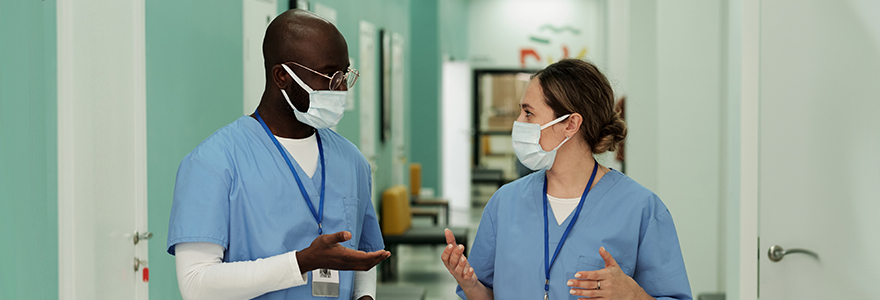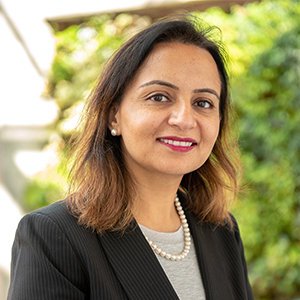Peer support program now available for physicians at Windsor campus

By Communications
While the pandemic may be loosening its hold on our lives, it still has a grip on the mental and emotional wellbeing of physicians and clinical staff.
To answer the challenges, a first-of-its-kind program that supports clinician well-being in London is now being rolled out at Schulich School of Medicine & Dentistry’s Windsor campus.
Called Peers for Peers, the program provides one-on-one peer support for clinical faculty through empathic listening and shared experience. It was put in place early in the pandemic by Dr. Andrea Lum, Vice Dean, Clinical Faculty Affairs and Dr. Laura Foxcroft, Assistant Dean of Faculty Well-being.
 Assistant professor and lead of the Peer Support and Physician Wellness Program Schulich Medicine and Dentistry, Windsor Campus.
Assistant professor and lead of the Peer Support and Physician Wellness Program Schulich Medicine and Dentistry, Windsor Campus.
Through the program, ‘wellbeing leads’ from the School’s clinical departments are trained to provide emotional support and resources to their peers. It’s based on the growing body of evidence that one-on-one conversations with peers enhance wellness and build resilience.
Continued heavy workloads among physicians are contributing to the need, said Dr. Rasna Gupta, the wellbeing lead at Schulich Medicine’s Windsor campus. She noted a Canadian Medical Association web survey in fall 2021 showed that burnout was higher than in previous surveys – sitting at approximately 50 per cent across Canada. A similar survey showed the rate in the Windsor region sat at 57.5 per cent.
Burnout is still increasing because, even though the pandemic is abating, the clinical workload with those needing care and those on wait lists, is all contributing to moral injury for physicians who are in the system but do not have the resources to provide care.
The high burnout rates can contribute to poor treatment outcomes for patients as stressed physicians have an increased risk of making mistakes.
“And, if physicians make mistakes, they take it very hard mentally and morally, which can increase the risk of depression, anxiety, suicide, and substance abuse,” said Gupta.
Gupta explained why a peer-to-peer model is a good way to help physicians.
“It’s physicians helping physicians, more like a friend supporting you,” said Gupta. “The wellbeing leads provide empathetic listening, so if you have a concern or a problem, you can have a confidential conversation with a colleague who would understand the pressures you are under.”








